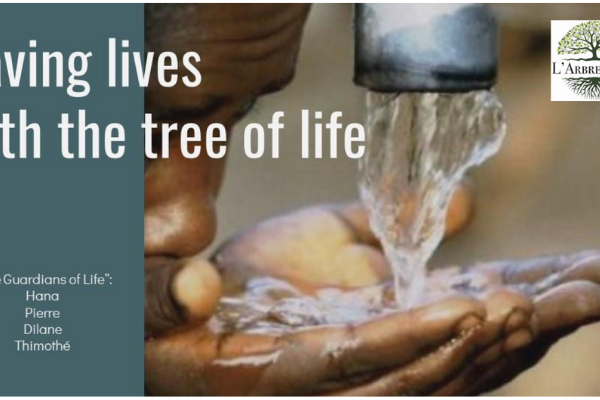CHARM-EU partnered with the UNESCO and the University of Montpellier to organize the Water4Future Hackathon, an international innovation contest inspiring people worldwide to address urban water challenges and design a sustainable future.

The W4F Hackathon in a nutshell
58 participants from 10 different countries and 36 hours to create a team project, foster entrepreneurship, imagine new digital tools and promote innovative solutions to preserve our environment and improve everyone’s daily life: that’s the ambitious challenge that several multidisciplinary team, guided by international experts, decided to take on. A collaborative and multidisciplinary experience focusing on sustainability, involving external stakeholders, creating a strong connection with business and society, and therefore perfectly embodying the spirit of CHARM-EU.
The CHARM-EU team rewarded
4 students from Eötvös Loránd University (Budapest, Hungary), from the University of Montpellier (France), from La Réunion, and from Cameroon joined forces to form a team coached by CHARM-EU experts and to produce the “The tree of life” project. All teams were asked to identify a challenge connected to a need from external stakeholders, to set a foundation for the innovative solution, to identify an ethical and sustainable solution combining various disciplinary perspectives, to virtually implement and evaluate the solution within the environment of the extra-academic actors, and to demonstrate the viability of the developed solution and convince a transdisciplinary audience. Based on such criteria, the CHARM-EU team was awarded the “Jury’s favourite” prize.
The tree of life
The “Tree of life” project consists in the creation of local infiltration basins allowing the infiltration of water, therefore storing water, improving its quality by infiltration process, and reducing the flooding risk. Inside of these basins, some Moringa grains will be added because studies have proven their effects on improving the water quality. Shrimps are also added into the system in order to consume the Moringa grains because after a while they can smell bad as a side effect. The project targets specific areas of the world with important demographic growth, lots of flood victims each year or children suffering from malnutrition, and with an environment conducive to tree planting and basins implementation.
Congratulations to the students for this beautiful project striving for environmental, economic and social progress and benefits.